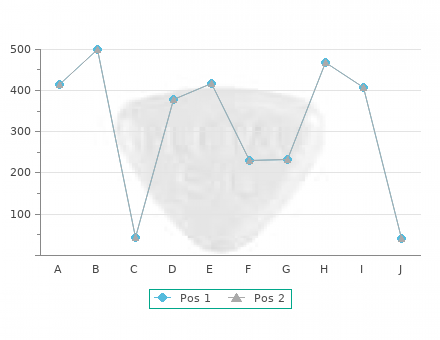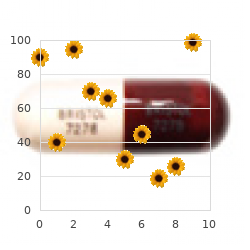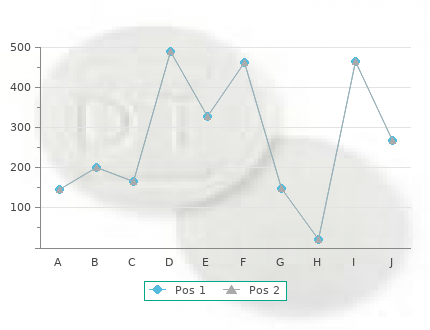Zyloprim
By V. Gonzales. La Sierra University. 2018.
For most the thought is fleeting zyloprim 300mg without prescription symptoms xanax addiction, happening after a major life loss discount 300 mg zyloprim fast delivery medicine synonym, or at some point in life where they perceive the future as becoming hopeless. For others, life is not quite so kind, they may have a strong genetic propensity to become depressed, a chemical imbalance, or a series of unfortunate life experiences may eventually end in depression. Still others have much to do with causing their own pain by using an unrealistic cognitive thought process and having expectations in life that are not possible to achieve. Whatever the cause, we are all at risk of having strong suicidal urges when it seems as though the future has become hopeless. There is no class or type of person that is exempt from having suicidal thoughts. Doctors, therapists, and teenagers from all walks of life, are all high on the percentage lists of completed suicide, although it seems that those people with strong religious convictions are least likely to attempt. Given a person is depressed and having suicidal thoughts, there are certain releasers or triggers which intensify the suicidal urge. Recognizing those triggers of renewed suicidal urges which are present in your life will help you to understand what is happening to you and begin to allow you more control of your emotions. Suicidal urges are particularly high just after a depressed patient first enters therapy. When beginning therapy the very symptoms give rise to thoughts such as "this will never work", or "why should I put myself through this, when there is no possible hope of success". Combined with these thoughts may be the possibility that the patient and therapist do not connect or bond (as may happen between any two strangers when they first meet). The expectation that therapy will fail, especially if this not the first attempt, is devastating. We begin to believe that if therapy fails, then we will never be rid of this pain, and what is the use of going on. It is particularly tragic, when a patient has gone through therapy and the depression has substantially lifted, that they then kill themselves. Depression is episodic, in that it can come and go, sometimes in an instant. If a person is feeling euphoric and at long last can envision themselves as depression free in the future, any setback will cause a flight back to the conditioned response of suicidal ideation. The thought of the pain returning is unbearable and the urge to die may become intense. The triggers which cause this renewed depressive and suicidal episode are usually the same things which contributed to the depression in the first place. After therapy a continued exposure to an abusive partner, an oppressive boss, the inability to overcome substance abuse, inadequate concept of self, financial problems, etc. These suicidal urges do not have to plunge you back into the depths of your depressive hell! This does not signify your therapy has failed or that you must then start again from square one. Recognizing those triggers or releasers of renewed suicidal urges that are present in your life will help you to understand when it happens and, that it can be reversed. The panic which follows renewed suicidal thoughts will be short lived if you do not allow this panic to take control of your mind. See your therapist, a friend, or the local crisis center. Let them help you talk it out, what you need now is - time. Off in an isolated room playing a game with a young child, or alone in the back yard inspecting whatever, we hide trying to avoid any conversation which might remind us of the pain. Aunt Annabell, or even a stranger might ask us if we have a job yet, or if the divorce is final, and we are slammed back into depression and suicidal thoughts. An inappropriate angry outburst might follow, giving credence to the saying that "you always hurt the ones you love". The antagonists in our lives (the oppressive boss, the abusive spouse or partner, or that jerk who never quits) can easily trigger renewed suicidal urges.
Sherwin has over 20 years experience working with individuals buy cheap zyloprim 300 mg line medicine 75 yellow, couples cheap zyloprim 300 mg overnight delivery treatment uterine cancer, families and groups. Formerly a senior clinician at the Dissociative Disorders Unit of the Institute of Pennsylvania Hospital, and a graduate of the Family Institute of Philadelphia, she specializes in working with trauma recovery and dissociation. Many of our visitors here tonight may know the term Dissociative Identity Disorder or DID, but may not be familiar with the term "dissociation. Sheila Fox Sherwin: Dissociation is a defense mechanism that we all have to some degree, where one part of the mind is blocked off by other parts of the mind. We all know about "highway hypnosis" while driving in the car we can get into a trance-like state. The same possibility exists when we go to the movies. David: In terms of traumatic emotional experiences, like being abused in any fashion, how intense does the experience have to be before one begins to dissociate? Sheila Fox Sherwin: It depends on our chidhood experiences and how vulnerable we are to a trance state. There are all levels of dissociation, from simple daydreaming to the mind fragmentation of DID/MPD. David: Would you classify dissociation as a good or bad thing, in terms of the way an individual copes with certain events? Sheila Fox Sherwin: Dissociation can be a very positive survival mechanism, that can allow a person to cope with terrible trauma and still function. It becomes a negative when it gets in the way of our functioning in our everyday life. David: You have worked with many individuals who have been abused in some fashion. Is there a "Best Way" that an individual can deal with a traumatic event? Sheila Fox Sherwin: We are all individuals, and there is no best way, but in general, working with an experienced clinician, developing a treatment plan together and following through with it can be very successful. Sheila Fox Sherwin: Yes, I think it is possible for most people to recover. It does take alot of hard work and commitment though. David: And when you use the word "recover," how do you define that? Sheila Fox Sherwin: I mean that we can have the kind of life we want to a reasonable extent. When we are talking about more severe forms of dissociation, some people are more vulnerable to self-hypnosis, dissociation, while others develop other coping mechanisms. Sheila Fox Sherwin: The information probably has been dissociated into another part of the mind in order to protect you. David: Could you briefly describe what that process for healing is and what it entails? Sheila Fox Sherwin: Again, it depends on the extent of the trauma and our own childhood experiences, but we need to engage in a therapeutic alliance with an experienced clinician, where the treatment goals are clear and there is a therapeutic partnership. We begin with what you remember, and begin to explore that. Sheila Fox Sherwin: Well, when we deal with the abuse, we begin to heal and move forward in our lives. David: Sheila, earlier in our discussion, you mentioned the importance of forming an alliance with an experienced therapist. What constitutes an "experienced therapist" and what is so important about forming an alliance with this person? Sheila Fox Sherwin: An experienced therapist has training and clinical experience working with people who have experienced trauma, PTSD and dissociation. They should be able to answer any questions you have about their expertise and training. A therapeutic alliance is based on mutual respect, partnership, and evolving trust.

With OCD buy zyloprim 100 mg on line medicine for the people, the person intellectually knows that his or her fear or obsession is not warranted generic 100 mg zyloprim mastercard treatment 4 letter word, but the person still has a feeling inside that it is true. Even though, the cognitive part of your brain knows that, some people can be on the edge and occasionally believe that their obsessions are real, but most know the difference. You can click on this link and sign up for the mail list at the top of the page so you can keep up with events like this. Now onto more audience questions:mitcl: Have you ever heard of Eye Movement Desensitization and Reprocessing ( EMDR ) for helping treat OCD. I count everything and I am constantly saying prayers, so nothing "bad" will happen. You need to work with a good cognitive behavior therapist to develop a treatment plan. When you say that your mind goes constantly; it is probably generating obsessions. Then, the counting and praying are actually mental rituals that you do to lessen the anxiety caused by the obsessions. You need to have a plan to stop the rituals, and just feel the anxiety produced by the obsessions. Once your brain learns (and I mean learns) that you will not do rituals, it will tire of generating obsessions. Some of your mental rituals, are by now almost automatic, so you will have to make a conscious effort to cut them back. The first step is to list all the mental rituals, and then decide which ones to approach first. Besides the book I mentioned earlier, another good book is " Getting Control ". David: I am getting some questions regarding what constitutes a diagnosis of OCD. I must scratch it and it feels better once scratched, but actually it spreads and gets worse in the long run. Kerri20: I wanted to share that exposure and response therapy, as well as CBT, helps me a lot. Jenike: Exposure and response prevention is the BT part of CBT. Gridrunner: Have you heard of some success using St. In Germany, there are dozens of studies using SJW for mild to moderate depression, but its use for treating OCD is relatively new. I have tried it in quite a few patients, with not much success. But then again, most of the patients I see now, are on the more severe end of the spectrum. It is approximately three tablets per day of the most commonly available preparations. There is quite a bit of information on the internet about dosing. The dosing studies are with depression, but most people use similar doses for OCD. Also, I can never wear anything more than once without washing it. I am entering the working world and will have to take the public bus. For advice, go to the OC Foundation web site, join the OCF and learn about OCD and how to treat it. The people with fear of germs are actually the easiest to treat, and success rates are great if you do the exposures and response prevention. If you contact a support group locally, they can tell you which local doctors know how to treat OCD. David: CBT, by the way, is Cognitive Behavioral Therapy.

Infrequent: agitation effective zyloprim 300mg treatment yeast infection home remedies, anxiety order 100mg zyloprim amex medications without a script, decreased cognition, detached, difficulty concentrating, dysarthria, emotional lability, hallucination, hypoesthesia, illusion, leg cramps, migraine, nervousness, paresthesia, sleeping (after daytime dosing), speech disorder, stupor, tremor. Rare: abnormal gait, abnormal thinking, aggressive reaction, apathy, appetite increased, decreased libido, delusion, dementia, depersonalization, dysphasia, feeling strange, hypokinesia, hypotonia, hysteria, intoxicated feeling, manic reaction, neuralgia, neuritis, neuropathy, neurosis, panic attacks, paresis, personality disorder, somnambulism, suicide attempts, tetany, yawning. Gastrointestinal system: Frequent: dyspepsia, hiccup, nausea. Infrequent: anorexia, constipation, dysphagia, flatulence, gastroenteritis, vomiting. Rare: enteritis, eructation, esophagospasm, gastritis, hemorrhoids, intestinal obstruction, rectal hemorrhage, tooth caries. Hematologic and lymphatic system: Rare: anemia, hyperhemoglobinemia, leukopenia, lymphadenopathy, macrocytic anemia, purpura, thrombosis. Rare: abscess herpes simplex herpes zoster, otitis externa, otitis media. Liver and biliary system: Infrequent: abnormal hepatic function, increased SGPT. Metabolic and nutritional: Infrequent: hyperglycemia, thirst. Rare: gout, hypercholesteremia, hyperlipidemia, increased alkaline phosphatase, increased BUN, periorbital edema. Rare: arthrosis, muscle weakness, sciatica, tendinitis. Reproductive system: Infrequent: menstrual disorder, vaginitis. Rare: breast fibroadenosis, breast neoplasm, breast pain. Respiratory system: Frequent: upper respiratory infection. Rare: bronchospasm, epistaxis, hypoxia, laryngitis, pneumonia. Rare: acne, bullous eruption, dermatitis, furunculosis, injection-site inflammation, photosensitivity reaction, urticaria. Special senses: Frequent: diplopia, vision abnormal. Infrequent: eye irritation, eye pain, scleritis, taste perversion, tinnitus. Rare: conjunctivitis, corneal ulceration, lacrimation abnormal, parosmia, photopsia. Urogenital system: Frequent: urinary tract infection. Rare: acute renal failure, dysuria, micturition frequency, nocturia, polyuria, pyelonephritis, renal pain, urinary retention. Since the systemic evaluations of Zolpidem in combination with other CNS-active drugs have been limited, careful consideration should be given to the pharmacology of any CNS-active drug to be used with Zolpidem. Any drug with CNS-depressant effects could potentially enhance the CNS-depressant effects of Zolpidem. Zolpidem tartrate tablets were evaluated in healthy subjects in single-dose interaction studies for several CNS drugs. Imipramine in combination with Zolpidem produced no pharmacokinetic interaction other than a 20% decrease in peak levels of imipramine, but there was an additive effect of decreased alertness. Similarly, chlorpromazine in combination with Zolpidem produced no pharmacokinetic interaction, but there was an additive effect of decreased alertness and psychomotor performance. A study involving haloperidol and Zolpidem revealed no effect of haloperidol on the pharmacokinetics or pharmacodynamics of Zolpidem. The lack of a drug interaction following single-dose administration does not predict a lack following chronic administration.

10 of 10 - Review by V. Gonzales
Votes: 216 votes
Total customer reviews: 216

Detta är tveklöst en av årets bästa svenska deckare; välskriven, med bra intrig och ett rejält bett i samhällsskildringen.
Lennart Lund
